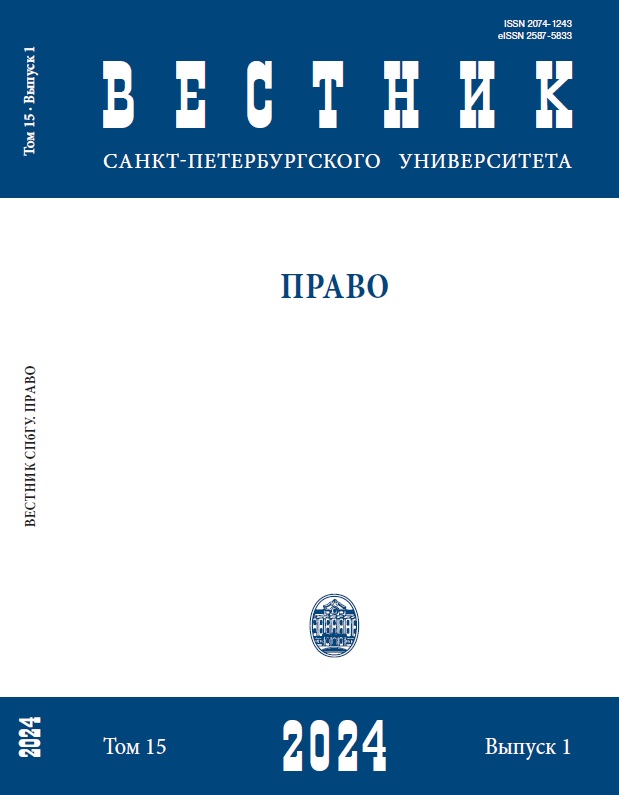Implicit administrative acts
Part two
DOI:
https://doi.org/10.21638/spbu14.2024.107Abstract
Based on the comparative legal method, the article analyzes the use of the construction of implicit (fictitious) decisions in Russian and several European legal orders, when the inaction of the public administration is equated with the adoption of an administrative act. In the first part of article the author provides a brief overview of the evolution of the legal regulation of the silence of public administration in France, the Netherlands and Germany, and considers the influence of the Directive 2006/123/EC of the European Parliament and of the Council of 12 December 2006 on services in the internal market (Services Directive) on the development of the institution of implicit decisions in the EU countries. The paper analyses the conceptual basis and the main arguments pro et contra of two models of implicit administrative acts – a negative decision (based on the principle of “silence is a sign of refusal”) and a positive decision (based on the principle of "silence is a sign of consent"). The analysis of legislation and judicial practice in the second part of article leads to the conclusion about the active use of the principle of "silence is a sign of consent" in regulating the activities of public administration in Russia. At the same time, the negative model of implicit administrative acts (silent refusal) has not been developed in the Russian legal system. However, the doctrine of implicit administrative acts in Russia remains largely underdeveloped, which negatively affects the effectiveness of public administration and judicial protection of the rights of private parties.
Keywords:
административное молчание, бездействие, публичная администрация, подразумеваемое решение, фиктивное решение, административный акт, административное решение, молчаливое разрешение, молчаливый отказ
Downloads
References
Downloads
Published
How to Cite
Issue
Section
License
Articles of "Vestnik of Saint Petersburg University. Law" are open access distributed under the terms of the License Agreement with Saint Petersburg State University, which permits to the authors unrestricted distribution and self-archiving free of charge.






